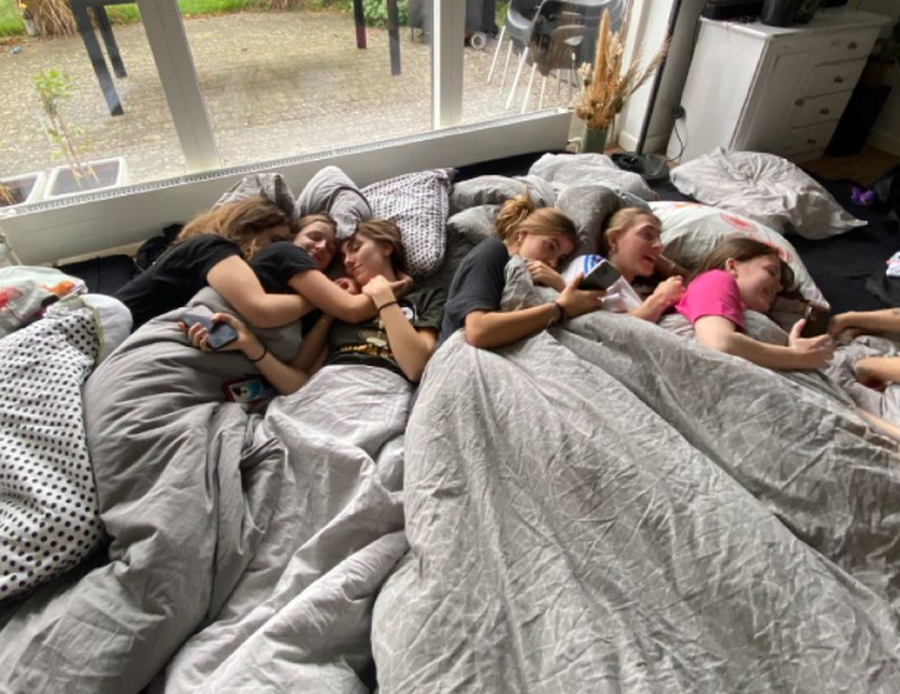
Children's sleepovers are no longer as innocent as they once were. Even the most relaxed parents are worried about their children's safety when they spend the night at friends' houses.
When teenagers head out for a night of games and chats at their friends', you never know what might happen. Recent stories tell of alcohol use, drug use, peer pressure, and even sexual experimentation. With cell phones and social media, anything can follow kids even when the lights are off.

Therefore, many parents are reconsidering how they allow their children to participate in sleepovers, not because they don't trust their children, but because the risks are greater. Here are some of them:
1. Lack of supervision
Even the most careful parents can have a hard time controlling what their teens do after lights out. Not all homes have the same rules or active supervision. Every time a child goes to a friend's house, parents take a calculated risk.
2. Technology and social networks
With phones in their pockets, a game night can quickly turn into a dangerous situation. Viewing inappropriate content, sharing photos without permission, cyberbullying , or connecting with strangers on apps are real concerns. Even if your child doesn't do these things, others may be exposing them to uncomfortable situations.

3. Alcohol, tobacco, drugs and peer pressure
If everyone around them is doing something, it's easier for them to say “yes.” Sleeping away from home creates a sense of freedom and the opportunity to do things they wouldn't do at home, like drinking alcohol, experimenting with drugs, or getting out of their parents' control.
4. Sexual experiments or uncomfortable situations
Sleepovers can bring more than just pillow fights and innocent chats. Even same-sex children may face situations they are not emotionally ready to handle, including boundaries and acceptance of a situation.
5. Unheard social pressures
These nights can create exclusion of your child from a group, gossip, or emotional stress. For teens with anxiety, neurodivergence, or social fatigue, sleeping away from home can be more stressful than fun.

6. Lack of sleep
One of the things that was once unspoken is sleep deprivation and its impact. Today, teens struggle more to get enough sleep due to the constant technological devices. A sleepless night can affect mood, concentration, and health.
7. “What if?” factors
Even in trusting families, parents worry about the unexpected. A text message, an older friend, or an adult's slip-up can have a powerful impact on a child's experience.
Solutions that parents are using
Finding a middle ground: Sleepover invitations, short sleepovers, or supervised visits between families who know each other well.
Clear conversations and rules: Questions about care and expectations before letting the child go.
Safety and SOS code: A signal or message that the child can use to return home without questions.
Trust in the parent's instincts: The decision to allow sleepovers outside the home should be made by also trusting the instincts to maintain the child's safety.








